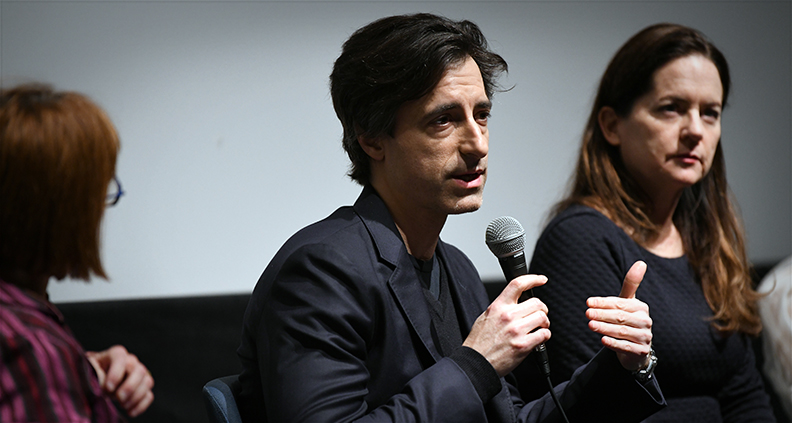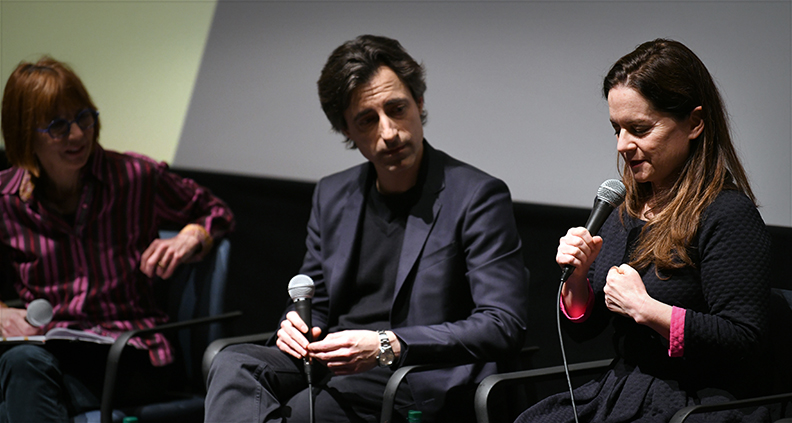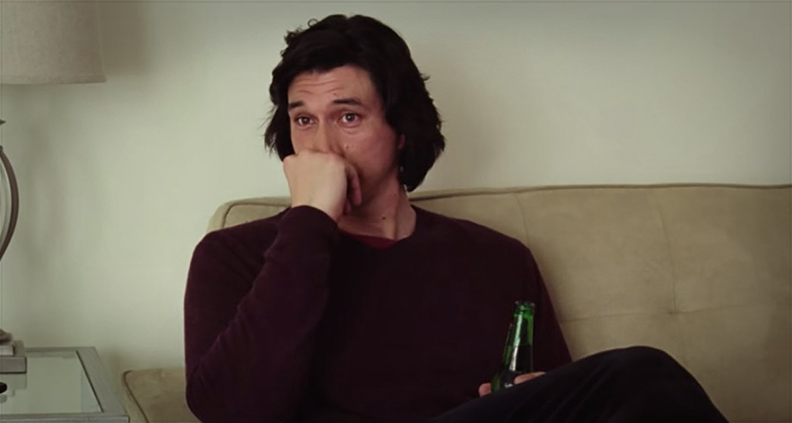Take note, emerging filmmakers: the first step to writing and directing your own feature often begins with studying an established artist with a strong body of work; an artist like Noah Baumbach—who across ten critically acclaimed features has been renowned for capturing authentic moments between characters. Week Two of this year’s Directors Close-Up featured a trio of collaborators, speaking to Baumbach’s casting and acting process: writer/director Baumbach, veteran casting director Francine Maisler and LA-based stand-up-turned-actress Martha Kelly, discussing their Film Independent Spirit Award nominated Marriage Story, currently streaming on Netflix. A searing, sensitive portrait of a disintegrating marriage, the film gives insight into the practical ramifications of a fractured love affair. Alongside his talented, unique collaborators, Baumbach touched on the casting process and the collaboration involved to bring Marriage Story to the big screen. The panel was moderated by screenwriter and director Jane Anderson (Olive Kitteridge, The Wife) and happened on January 22 at The Landmark Theaters in West Los Angeles. Keep reading for highlights from the evening.
Baumbach, on casting Kelly (FX’s Baskets)—who appears in a memorable sequence late in Marriage Story as a comically inscrutable social worker sent to observe single father Charlie (Adam Driver) in his natural environment: “One of our surprises was Martha. That was a more challenging role to cast than maybe it would’ve seemed. A lot of really great actors came in and read for the part of the evaluator.” But it was Kelly, said the filmmaker, who was the actor who actually helped bring the part to life. “When Martha came in, you actually realize the part you wrote in a way beyond what you thought you had written. Then you’re like oh, that’s what I was getting at,” he said. Maisler, Kelly’s initial advocate, chimed in to rib Baumbach, her longtime collaborator: “I knew that.” Baumbach agreed: “Francine always knows.” On their partnership, Maisler said: “I think you [Noah] and I also have the same sense of humor, so that’s what makes our collaboration easier.” Maisler also praised Baumbach’s filmmaking style, stating: “What’s rare about Noah is that what I hold so dear in the performances in [Marriage Story] is how it’s so sad and so funny,” she said. “That’s what I love in a movie, and that’s what he does.” Prior to Marriage Story, Kelly had never auditioned in-person for a role before. She said of the experience: “I definitely didn’t think there was any way I would get the part. I didn’t even know that when you do an audition that you’re supposed to look into the camera, because it’s being filmed for the director who isn’t there in the first round,” she said, as the audience laughed. She went on. “There’s no way I would’ve gotten to come back at all for a callback if Francine hadn’t pretty much coached me and been encouraging, because I was terrified,” Kelly said, emphasizing the importance of a good casting director as a collaborator of both the filmmaker and the prospective performer. Baumbach shared his love for auditioning actors—particularly when actors don’t come in too polished. “This is something that Francine knows about me, is when I started auditioning people, I felt that people came in often rawer. They kind of had scripts there, they maybe had to look down a bit,” Baumbach noted he likes when actors don’t have “it” fully down during the audition process. “In a first audition, it’s not about how good you are even necessarily, it’s just about is this the right fit?” he said, saying that often performers who aren’t exactly correct for his current film will remain in mind for future projects. Baumbach finds he likes more of a slower transition—an actor who won’t take their character too far in the audition. “What I’ve done on some movies. We did it with this movie, with Martha. I just give them [actors] the sides, not the full script, and don’t even really tell them much about it. Because I just want an impression of that moment and that scene,” he said. “On [2012’s] Frances Ha, I only gave people the parts they were in when we shot the movie. So they didn’t know the whole movie, because it was only relevant the moments they were in. I think there’s something often more alive about that,” said Baumbach, though he mentioned he will give actors biographical or story information that’s relevant to their characters, if needed. Baumbach, notorious for his tight scripts, spoke to giving actors freedom enough to explore the script within the parameters of what’s written—so much so that the performances often look and feel like improvisation, but aren’t: “To me it’s not counterintuitive that if you create structure, it actually you total freedom.” He continued: “It also removes a kind of burden on the actor, in that they’re not having to come up with stuff. It’s all about interpretation and about inhabiting it, but the framework is there for them to play with,” he said. “To me, that makes total sense. That’s what feels like the sort of intuitive way to make the movie,” noting that there’s no single right way to make a movie. So whether you are all for structure, keeping things loose or somewhere in-between, develop your scripts, find your filmmaking style and trust your collaborators to bring something special.
Directors Close-Up continues tomorrow, January 29. All Directors Close-Up panels will take place at The Landmark (10850 W Pico Blvd) on Wednesday evenings at 7:30 pm, followed by a post-panel reception.’ The 2020 Directors Close-Up is sponsored by the Directors Guild of America, Landmark Theatres and SAGIndie. The official photographer is Getty Images. Additional support provided by BRICKTOWN. Stay tuned to our events page for information regarding single night tickets. Visit Film Independent’s website and click here to subscribe to our YouTube channel.
More Film Independent…
Twitter Instagram Membership Spirit Awards


